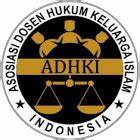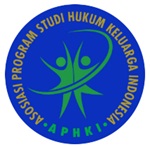Kontribusi Pendidikan Islam dalam Meningkatkan Kesadaran Hukum tentang Nafkah dalam Rumah Tangga
DOI:
https://doi.org/10.29240/berasan.v3i2.12517Keywords:
Islamic Education, Maintenance Law, Legal AwarenessAbstract
This study discusses the contribution of Islamic education in increasing legal awareness about domestic maintenance. This research uses a literature study method by examining various sources such as books, scientific journals, ulama fatwas, and Islamic legal documents related to Islamic education and maintenance law. An analysis was carried out on Islamic education theory, the concept of legal awareness, and the study of Islamic family law to understand how Islamic education contributes to building an understanding of the obligation to provide for maintenance. The results of the study show that Islamic education plays a role in increasing understanding and compliance with the law of domestic maintenance. A curriculum that teaches Islamic family law in formal and non-formal educational institutions can strengthen individual awareness of rights and obligations in the family. However, the contribution of Islamic education is still influenced by teaching methods, family support, and social environment. The conclusion of this study confirms that Islamic education has a significant contribution in building awareness of the law of maintenance in the household. Therefore, it is necessary to strengthen the curriculum and learning strategies so that the understanding of Islamic family law can be more optimal.
Downloads
References
Azhari, Jalaluddin Faruk, ‘Peran Pendidikan Agama Islam Dalam Deradikalisasi’, Jurnal Subulana, 1.2 (2018), 70–80 <https://doi.org/10.47731/subulana.v1i2.15>
Darmawati, Nafkah Dalam Rumah Tangga Perspektif Hukum Islam (Studi Kasus Di Kelurahan Gunung Sari Makassar), Tesis, 2014
Jamingrat, Romantri, ‘PERAN NINIAK MAMAK DALAM MENINGKATKAN KESADARAN HUKUM’, 7.1 (2022)
Maimun, ‘Fiqh Jinayah Sebagai Landasan Pendidikan Hukum Islam Untuk Meningkatkan Kesadaran Hukum Di Kalangan Mahasiswa’, Jurnal Al-Mizan: Jurnal Hukum Islam Dan Ekonomi Syariah, 6468 (2024), 2–10
Mildawati, Titi, and Tasmin Tangngareng, ‘Vifada Journal of Education ISSN : 3021-713X Jenis-Jenis Pendidikan ( Formal , Nonformal Dan Informal ) Dalam Perspektif Islam’, 1.2 (2023), 1–28
Rizka, Abdul Ghopur, and Any Ismayawati, ‘Jimsya : Jurnal Ilmu Syariah Anak Sebagai Pencari Nafkah Keluarga Perspektif Hukum Islam Dan Undang-Undang Nomor 23 Tahun 2002’, 2 (2023), 145–62
Romlah, Sitti, and Rusdi Rusdi, ‘Pendidikan Agama Islam Sebagai Pilar Pembentukan Moral Dan Etika’, Al-Ibrah : Jurnal Pendidikan Dan Keilmuan Islam, 8.1 (2023), 67–85 <https://doi.org/10.61815/alibrah.v8i1.249>
Yani, Nurlinda, ‘Hak Dan Nafkah Istri Dalam Hukum Islam : Analisis Konsep Kesetaraan Gender’, 02.02 (2024), 95–106
Downloads
Published
Issue
Section
Citation Check
License
Copyright (c) 2025 Ngadri Ngadri

This work is licensed under a Creative Commons Attribution-NonCommercial-ShareAlike 4.0 International License.
Authors who publish with Berasan: Journal of Islamic Civil Law agree to the following terms:
- Authors retain copyright and grant the journal right of first publication with the work simultaneously licensed under a Creative Commons Attribution-NonCommercial-ShareAlike 4.0 International License (CC BY-NC-SA 4.0) that allows others to share the work with an acknowledgment of the work's authorship and initial publication in this journal.
- Authors are able to enter into separate, additional contractual arrangements for the non-exclusive distribution of the journal's published version of the work (e.g., post it to an institutional repository or publish it in a book), with an acknowledgment of its initial publication in this journal.
- Authors are permitted and encouraged to post their work online (e.g., in institutional repositories or on their website) prior to and during the submission process, as it can lead to productive exchanges, as well as earlier and greater citation of published work (See The Effect of Open Access).









